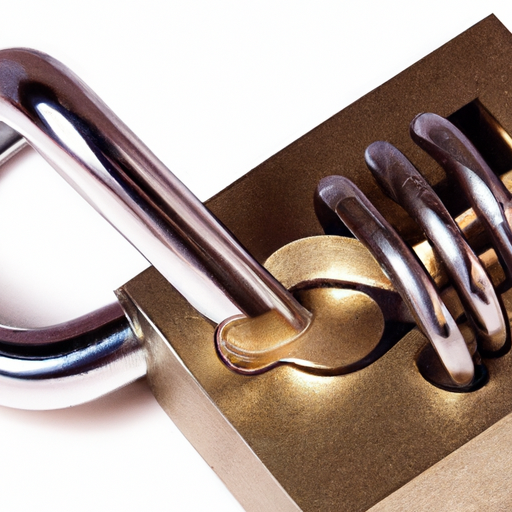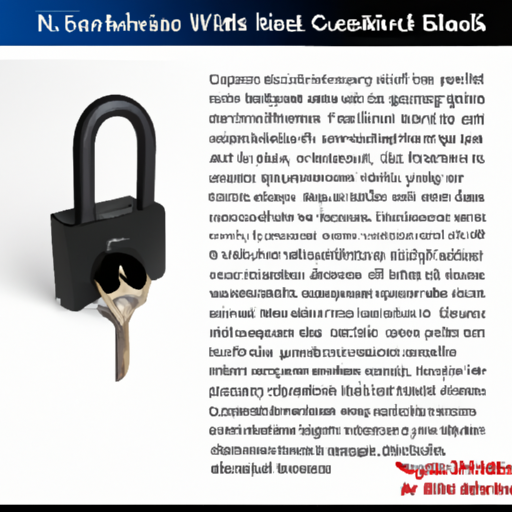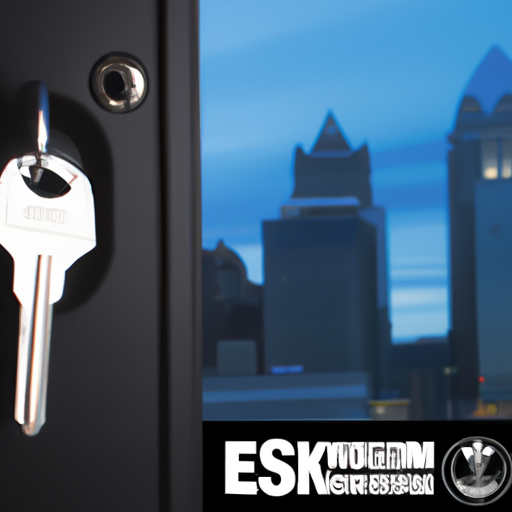
In this article, you’ll learn all about what rekeying a lock means and why it’s an important process to consider. We’ll explain the concept of rekeying, which involves altering the lock’s internal mechanisms to fit a new key. By doing so, you’ll gain a better understanding of how this process can enhance security and convenience for your home or business. So, let’s unlock the mysteries of rekeying a lock together!
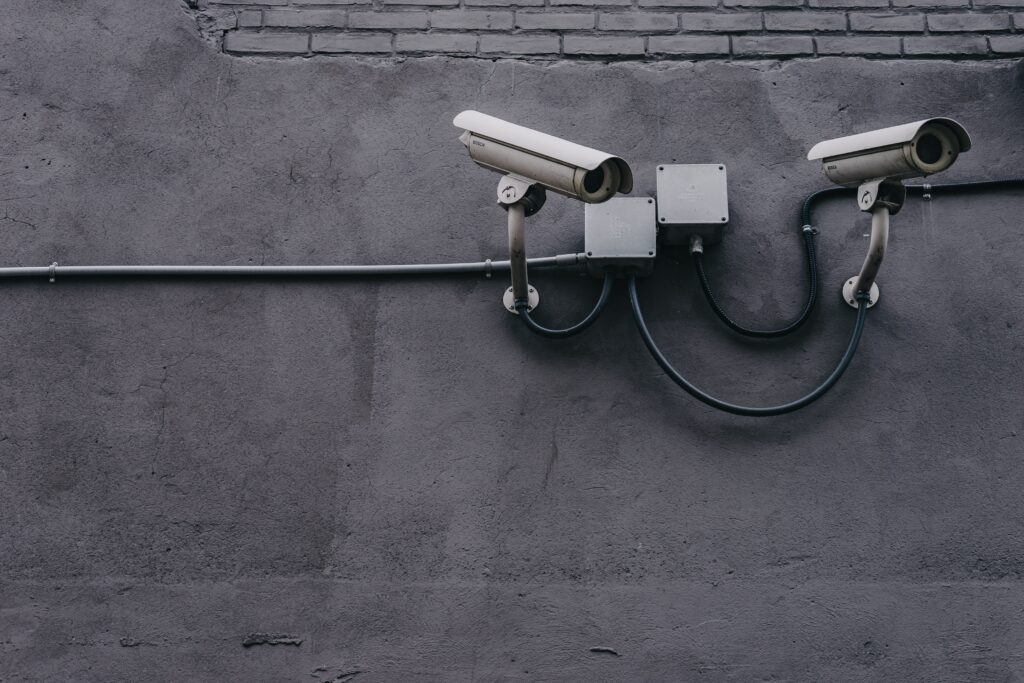
Understanding the Concept of Rekeying a Lock
Rekeying a lock is a process of changing the internal components of a lock to render existing keys ineffective. This allows the lock to be operated by a new set of keys without replacing the entire lock. Rekeying is a cost-effective and convenient solution for enhancing home security or addressing lock-related issues. In this article, we will explore the definition of rekeying a lock, discuss how it differs from replacing a lock, examine the reasons why people choose to rekey a lock, understand the process of rekeying, explore the tools required, discuss when to seek professional help, highlight the advantages and disadvantages of rekeying, provide tips to maintain rekeyed locks, and offer guidance on finding a professional locksmith for rekeying.
Definition of Rekeying a Lock
Rekeying a lock involves altering the internal components, particularly the lock cylinder, in order to match a different set of keys. This process does not require changing the entire lock mechanism, only the key pins or tumblers are replaced or reconfigured to accept the new keys. By doing so, the old keys will no longer operate the lock, enhancing the security of the property.
How Rekeying Differs from Replacing a Lock
While rekeying a lock and replacing a lock may achieve similar outcomes, they differ in terms of cost and complexity. Replacing a lock involves removing the entire lock mechanism and installing a new one, along with new keys. This process is usually more expensive, especially if the lock is a high-security lock or requires professional installation. Rekeying, on the other hand, is a more affordable option since it only requires changing the internal components of the lock. It also eliminates the need to replace multiple locks in a property, as a single set of new keys can be used to operate all rekeyed locks.
Reasons Why People Choose to Rekey a Lock
Enhancing Home Security
One of the primary reasons why people choose to rekey a lock is to enhance the security of their homes. Rekeying allows homeowners to regain control over who has access to their property. For example, after purchasing a new home, it is advisable to rekey the locks to ensure that previous owners or tenants do not have keys to the property. Similarly, if a set of keys is lost or stolen, rekeying can prevent unauthorized access to the property.
When Moving to a New House or Office
When moving to a new house or office, it is crucial to prioritize security. Rekeying the locks is a simple and effective way to ensure that only authorized individuals have access to the property. By rekeying the locks, you eliminate the risk of unknown or unauthorized individuals having keys to your new property.
After Losing Keys
Losing keys can be a stressful experience, especially if they were a set of keys to your home or office. Rekeying the lock provides peace of mind by rendering the lost keys useless. This eliminates the risk of someone finding the lost keys and gaining unauthorized access to your property.
In Case of Break-Ins or Burglaries
In unfortunate situations where a property has been broken into or burglarized, rekeying the locks is highly recommended. This is because intruders may have picked the locks or copied the keys to gain access initially. By rekeying the locks, you ensure that the previous keys no longer work, preventing any potential repeat break-ins.
The Process of Rekeying a Lock
Rekeying a lock involves several steps that can be carried out with the help of basic locksmith tools or by a trained professional. While the steps may vary slightly depending on the lock type, the general process remains the same. Here is an overview of the key steps involved in rekeying a lock:
Removing the Lock Cylinder
The first step in rekeying a lock is to remove the lock cylinder from the door or the lock mechanism. This is usually done by removing the screws or retainer clip that holds the cylinder in place. Once the cylinder is removed, the lock can be disassembled.
Disassembling the Lock
After removing the lock cylinder, the lock needs to be disassembled to access the internals of the lock mechanism. This involves removing additional screws or clips that hold the lock components together.
Replacing the Pins or Tumblers
Once the lock is disassembled, the pins or tumblers inside the lock cylinder need to be replaced or reconfigured. This is where the new set of keys comes into play. The new pins or tumblers are chosen to match the new key, ensuring that only the new set of keys can effectively operate the lock.
Reassembling the Lock
After replacing the pins or tumblers, the lock is reassembled by reversing the disassembly process. The lock components are aligned and secured back together using screws or clips, ensuring that they are properly functioning.
Testing the New Key
Before completing the rekeying process, it is crucial to thoroughly test the new key. This is done by inserting the new key into the lock and turning it to lock and unlock the mechanism. The key should operate smoothly without any sticking, and the lock should securely engage and disengage.
Tools Required for Rekeying a Lock
Rekeying a lock requires specific tools that enable the smooth and efficient completion of the process. While some tools may vary depending on the lock type and brand, here are some commonly used tools for rekeying:
Pinning Kit
A pinning kit contains various sizes and types of pins or tumblers used to match the new set of keys. It typically includes driver pins and key pins.
Plug Follower
A plug follower is a tube-like tool used to hold the lock plug in place during the rekeying process. It prevents the springs and driver pins from falling out while removing the lock cylinder.
Tweezers
Tweezers are small, pointed tools used to handle and manipulate the pins or tumblers during the rekeying process. They are particularly useful for fine-tuning and aligning the pins inside the lock cylinder.
Key Gauge
A key gauge is a tool used to measure the depth and spacing of the tumblers inside the lock cylinder. This helps in selecting the appropriate pins or tumblers for the new key.
Spanner Wrench
A spanner wrench is used to remove and install the retaining ring or clip that holds the lock cylinder in place. It provides leverage and grip to securely tighten or loosen the retaining mechanism.

When to Seek Professional Help for Rekeying?
While rekeying a lock can be done as a DIY project, there are certain situations where seeking professional help is recommended:
Complex or High-Security Locks
If you have complex or high-security locks, it is advisable to seek the expertise of a professional locksmith. These locks often have advanced mechanisms that require specialized knowledge and tools for rekeying. Attempting to rekey such locks without adequate knowledge and experience may result in damage.
Lack of Knowledge or Experience
If you are not familiar with the process of rekeying locks or lack the necessary tools, it is best to hire a professional locksmith. They have the expertise to handle different types of locks and ensure a seamless rekeying process.
Time Constraints
Rekeying a lock requires time and patience, especially if you are new to the process. If you are unable to dedicate sufficient time to complete the rekeying process, it is recommended to hire a professional locksmith who can efficiently rekey the lock.
Emergency Situations
In emergency situations such as lockouts or immediate need for rekeying after a break-in, it is crucial to seek professional help. Professional locksmiths offer emergency services and can quickly rekey the locks to secure your property.
Advantages of Rekeying a Lock
Cost-Effective
Rekeying a lock is a cost-effective alternative to replacing the entire lock. It allows you to change the keys and enhance security without the need for purchasing new locks and keys.
Maintains Hardware Consistency
Rekeying a lock helps in maintaining hardware consistency throughout a property. Instead of replacing multiple locks, a single set of new keys can be used to operate all rekeyed locks, reducing the number of keys required.
Increased Security
Rekeying a lock increases security by rendering previous keys useless. This eliminates the risk of unauthorized individuals gaining access to your property using old keys. It provides peace of mind and allows you to have control over who has access to your property.
Convenience
Rekeying a lock is a convenient solution as it allows you to change the keys without complete lock replacement. It saves time and effort, particularly when rekeying multiple locks in a property.
Key Control
Rekeying gives you complete control over the keys to your property. You can ensure that no unauthorized copies of the keys exist and have the ability to immediately change keys in case of loss or theft.

Disadvantages of Rekeying a Lock
Limited Security Upgrades
Rekeying a lock does not offer significant security upgrades compared to replacing the entire lock. While it prevents old keys from working, it does not address any underlying vulnerabilities in the lock mechanism itself.
Risk of Damaging the Lock
Rekeying a lock requires precision and knowledge of the lock mechanism. If not done correctly, there is a risk of damaging the lock, rendering it inoperable. This is why seeking professional help is recommended for complex or high-security locks.
Lack of Aesthetic Changes
Rekeying a lock does not bring any aesthetic changes to the lock itself. If you are looking to update the appearance of your locks, replacing the entire lock with a new one may be a better option.
Finding a Professional Locksmith for Rekeying
When seeking professional help for rekeying a lock, it is essential to find a reputable locksmith. Here are some tips to assist you in finding a reliable locksmith:
Researching Local Locksmiths
Start by researching local locksmiths in your area. Make a list of locksmiths who specialize in rekeying or offer comprehensive locksmith services.
Checking Credentials and Reviews
Check the credentials of the locksmiths on your list. Look for certifications, licenses, and memberships in professional locksmith associations. Additionally, read online reviews and testimonials to gauge customer satisfaction and reliability.
Requesting Cost Estimates
Contact the locksmiths on your list and request cost estimates for rekeying your locks. Compare the pricing and services offered to make an informed decision.
Scheduling an Appointment
Once you have selected a locksmith, schedule an appointment to have your locks rekeyed. Make sure to discuss any specific requirements or concerns regarding your locks.
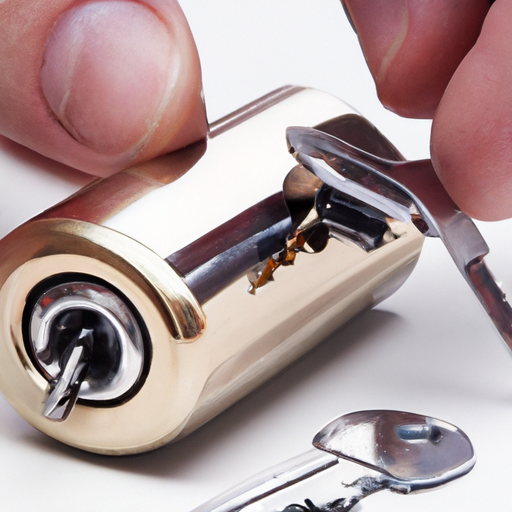
Tips to Maintain Rekeyed Locks
Regular Lubrication
To ensure the proper functioning of rekeyed locks, regular lubrication is essential. Apply a small amount of graphite-based lubricant to the lock mechanism to reduce friction and prevent corrosion.
Avoiding Excessive Force
Avoid using excessive force when operating a rekeyed lock. Applying too much pressure can cause damage to the lock mechanism, making it less secure.
Replacing Worn-Out Keys
If you notice any signs of wear or damage on your rekeyed key, it is advisable to replace it. Worn-out keys may not operate smoothly in the lock and can cause damage to the lock mechanism over time.
Conclusion
Rekeying a lock is an effective method to enhance home security or address lock-related issues without having to replace the entire lock. It is a cost-effective and convenient solution that allows individuals to regain control over the access to their property. By understanding the process, advantages, and disadvantages of rekeying, individuals can make informed decisions and ensure the safety of their property. Whether you choose to rekey your locks yourself or seek professional assistance, rekeying provides peace of mind and increased security for your home or office.
